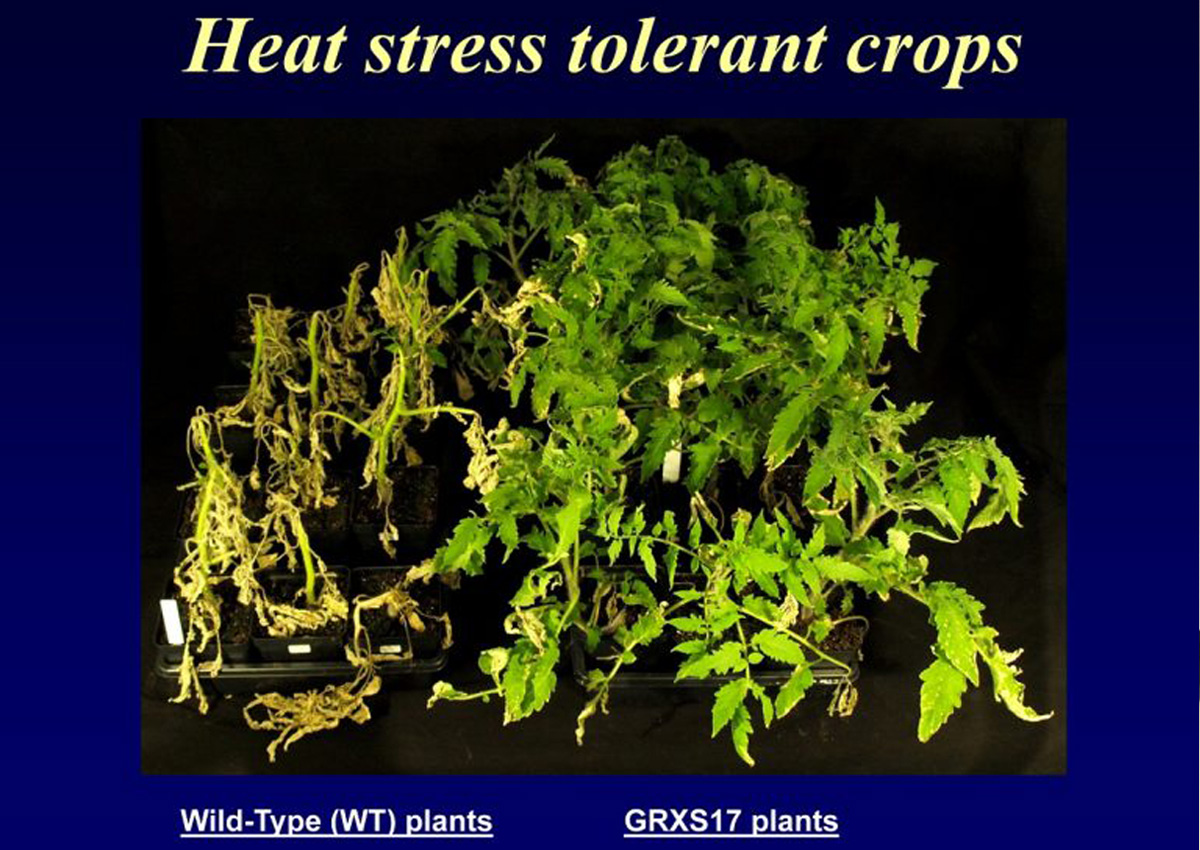
Gene to Make Plants Heat-Tolerant in Rising Temperatures Gets Patent
August 18, 2021| |
As temperatures rise globally, agriculture is severely affected as crops cannot withstand the heat. Now, a group of researchers from Kendal Hirschi Lab at Baylor College of Medicine and Kansas State University had a patent approved for a gene to make plants more tolerant to higher temperatures.
According to Drs. Kendal Hirschi and Ninghui Cheng, the patent has important environmental impacts. "In commercial agriculture, we want high yield and nutritious foods. In hot temperatures, the yield can be low, which is a problem. With this new gene, we're protecting plants when the temperatures rise so they can grow better," said Cheng, assistant professor of pediatrics-nutrition at Baylor and Texas Children's Hospital.
Hirschi said that high temperatures affect plants because they trigger an inflammatory response similar to what we see in humans. When it is hot, plants grow less. A two-degree rise in temperature can cause a 50 percent reduction in crop yields. With their patented gene, the two-degree temperature shift will cost no yield penalty. Crop yield will remain at 100 bushels, whereas without the gene, the yield would come down to 50 bushels. Hirschi points out that with this technology, scientists can develop better crops over the course of a few years, including rice, corn, wheat, and soybeans.
For more details, read the article on the Baylor College of Medicine website. To see the patent, visit the United States Patent and Trademark Office.
| |
You might also like:
- Gene Inserted in Tobacco Plant Sheds Light to Increased Heat Stress Resistance
- Gene Regulates Heat Stress Response in Pepper
- Heat Stress on Wheat in Europe - More of a Problem than Drought
Biotech Updates is a weekly newsletter of ISAAA, a not-for-profit organization. It is distributed for free to over 22,000 subscribers worldwide to inform them about the key developments in biosciences, especially in biotechnology. Your support will help us in our mission to feed the world with knowledge. You can help by donating as little as $10.
-
See more articles:
-
News from Around the World
- The Biotech Game: A Negotiation Simulation of Science Diplomacy
- The Impact of Gene Technology in Animal Agriculture and Food Production
- New Genotyping Technology to Boost Africa's Wheat Breeding Programs
- University of Illinois Study Opens Black Box of Herbicide Resistance
- Scientists Work to Improve Crops' Photosynthesis and Yields
- Researchers Develop Technique to Map Out Regulatory Switches in Maize Genome
- Gene to Make Plants Heat-Tolerant in Rising Temperatures Gets Patent
- Philippines on the Right Path With Genome Editing Regulations
- GMO Panel Finds GM Carnation Does Not Pose Risk To Health, Environment
- EFSA GMO Panel: Cotton GHB811 as Safe as Conventional Counterpart
-
Plant
- Researchers Present Prospects for Genome Editing of Potato
- IGI Works on Net-Zero Farming and Carbon Capture
-
Read the latest: - Biotech Updates (January 21, 2026)
- Gene Editing Supplement (January 28, 2026)
- Gene Drive Supplement (February 22, 2023)
-
Subscribe to BU: - Share
- Tweet

